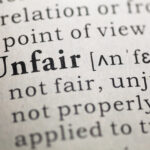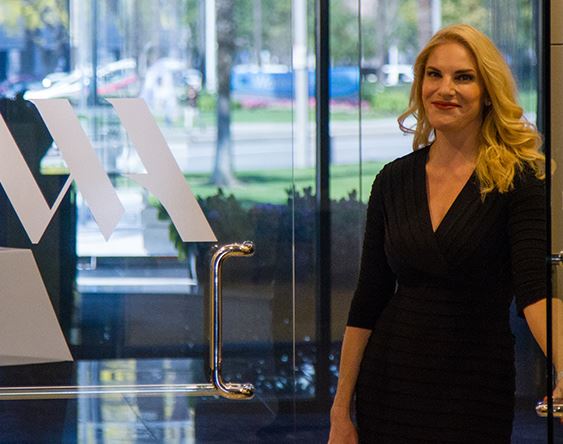UDAP Attorneys
Unfair & Deceptive Acts & Practices (UDAP) Civil Penalties
Consumers in California and across the U.S. are protected against dishonest practices by merchants under Section 5 of the Federal Trade Commission Act, Unfair and Deceptive Acts and Practices, or UDAP. While every state has its own interpretation of UDAP laws, the common theme is that businesses and merchants are prohibited from committing unconscionable or deceptive practices in regard to consumer transactions. Accidental or intentional UDAP violations may provide grounds for a valid lawsuit against the at-fault company. Civil penalties may be imposed, regardless of whether the consumer suffered direct losses or harm as a result of the violation.
Our UDAP attorneys handle cases involving such violations as:
- Abusive business or trade practices
- Deceptive, unlawful, and unfair trade practices
- False or misleading advertising
- Fraudulent business practices
Have your rights as a consumer been violated? Talk to an attorney about your options and right to compensation. Call (909) 345-8110 for a free consultation!
What is UDAP?

Unfair and Deceptive Acts and Practices (UDAP) serves as the basis to describe factors that can be dishonest, deceptive, or unfair practices. Each state will have its own interpretation of UDAP. However, the Federal Deposit Insurance Corporation (FDIC) applies the same standards as the FTC to determine if an act is unfair. According to the FDIC, a practice that is to be unfair must satisfy three requirements. First, it must cause or be likely to cause substantial injury to customers. Second, consumers cannot reasonably avoid the danger. Third, it cannot outweigh its benefits to consumers or to competition. The FTC uses a three-part test to determine if a practice is in violation. To determine a UDAP violation, a practice must mislead the consumer, the consumer must observe it, and the damages must be material. In most cases, these requirements can protect most consumers from dishonest or unfair practices but mostly consumer focused.
What is UDAAP?

UDAAP stands for Unfair, Deceptive, or Abusive Acts or Practices, laws designed to protect consumers from unethical financial practices by businesses. UDAAP is similar to UDAP but has some notable differences that set the two apart from one another. The foundations set for UDAAP follow that of UDAP closely, but with modifications that allow it to focus its protection. With this protection, financial products or service providers cannot deceive consumers into making unwanted purchases. In addition, the providers may not make misleading statements about their products and services to consumers. This protection, following the 2008 financial crisis, allows more consumer confidence in financial transactions. For UDAAP, an unfair practice is one that can harm consumers financially and that consumers cannot reasonably avoid.
When a McCune Law Group attorney represents a consumer or consumers who has been affected by Unfair and Deceptive Act and Practices violations, we pursue all possible compensation to maximize our client’s recovery. In addition to suing for damages to cover applicable financial losses or other harm suffered, the losing party may be held liable for your legal fees.
The majority of service providers, retailers, and manufacturers can be held liable for UDAP violations and subject to civil penalties, whether or not you as a consumer dealt directly with them. Civil penalties may apply regardless of intent, meaning the company can be accountable even if they do not act intentionally. Even accidental violations are actionable. If you believe you were deceived or otherwise subjected to unfair business practices by any company, a UDAP violation attorney at McCune Law Group can review the situation with you to determine if you have a valid case.
Frequently Asked Questions:
What constitutes UDAP and civil penalties?
Government Unfair and Deceptive Acts and Practices refer to a range of actions by government entities that are considered unfair, deceptive, or misleading in their interactions with the public. These acts and practices may include false advertising, fraudulent schemes, deceptive sales practices, unfair contract terms, and misleading information provided by government agencies or officials.
What are the consequences of UDAP?
The consequences of government Unfair and Deceptive Acts and Practices can vary depending on the jurisdiction and the specific circumstances. In general, individuals or organizations affected by such acts may experience financial harm, loss of trust in government, or violation of their rights. They may have legal recourse to seek remedies, such as filing complaints, pursuing legal action, or seeking compensation for damages caused by the unfair or deceptive practices.
Are there laws in place to regulate UDAP?
Yes, many jurisdictions have laws and regulations in place to regulate government Unfair and Deceptive Acts and Practices. These laws may vary, but they generally aim to protect individuals and organizations from unfair, deceptive, or misleading actions by government entities. They often establish guidelines for truthful advertising, consumer protection, fair contract terms, and penalties for non-compliance. Additionally, independent oversight bodies and consumer protection agencies may exist to monitor government actions and ensure compliance with these laws.
What To Do if Your Consumer Rights Have Been Violated
If you feel that your consumer rights have been violated, contact our UDAP attorneys today to discuss your potential case. Here is what you do:
- Fill out our contact form with your information
- Set up your free consultation
- Meet with our government UDAP civil penalties attorneys
- Discuss your potential case
- Discuss your next steps
What To Do if Your Consumer Rights Have Been Violated
McCune Law Group is one of the few private firms that has represented government entities to pursue civil penalties arising from fraud. When it was revealed that Volkswagen had cheated on its diesel emissions testing, each state brought their own claim for civil penalties. 44 states settled those claims using their own attorney general office and settled early with Volkswagen for $1,100 per vehicle. The state of Arizona wished to pursue the case further and did not settle and retained McCune Law Group to represent them because of our experience in automobile fraud and product liability cases. After two years of litigation, we were able to obtain a settlement of $40 million on behalf of the State of Arizona, which represented more than three times per vehicle more than the states who had pursued the case on their own (over $3,300 per vehicle).
To arrange your FREE consultation, contact us at (909) 345-8110.
